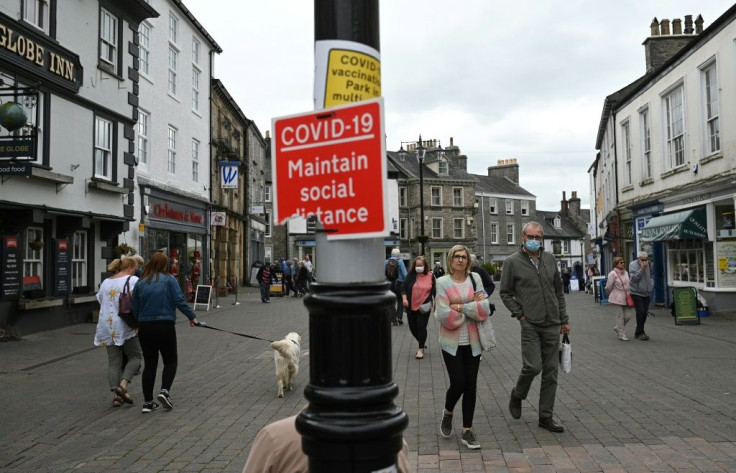UK Awaits Fallout From End Of Jobs Support Scheme
The British government's furlough scheme that has supported millions of private-sector jobs during the pandemic is close to ending, a move that risks a spike in unemployment according to economists.
Experts, however, do not expect sectors seriously affected by a shortage of staff owing to the virus outbreak and Brexit -- such as road haulage -- to necessarily benefit from the bigger pool of available workers.
"The furlough scheme has played a key role... protecting nearly 12 million jobs over the last 18 months," the Treasury told AFP in a statement ahead of the multi-billion-pound programme finishing at the end of September.
With the UK economy in recovery mode thanks to the lifting of lockdown restrictions at home and abroad, Britain's unemployment rate stands at 4.7 percent, down from a pandemic peak of 5.2 percent at the end of last year.
But the UK already has more than one million job vacancies despite the furlough scheme supporting jobs at a cost of almost ?70 billion ($95 billion, 82 billion euros).
"It is certainly possible, if not likely, that there will be a temporary fall in employment and rise in unemployment in October," noted Paul Dales, chief UK economist at Capital Economics research group.
"But we think that the strength of the economy will mean that either most of those workers will find a job before long or, more likely, that other unemployed people will find work and offset the decline."
Britain's economy rebounded 4.8 percent in the second quarter as the government began relaxing lockdown restrictions amid its fast-paced vaccination programme.
However the country's factories, restaurants and supermarkets are facing stubborn supply problems.
Covid helped spark a supply-chain crisis around the world.

In the UK, multiple lockdowns prompted also a fresh exodus of EU workers who filled many jobs in the logistics, construction and hospitality sectors.
The UK has faced major border delays after Britain's exit from the European Union on January 1, while new immigration rules have disrupted recruitment.
Such labour supply problems could last up to two years and will not be solved by the end of the furlough scheme, the head of Britain's main business lobby group warned Monday.
"While the CBI and other economists still predict growth returning to pre-pandemic levels later this year, furlough ending is not the panacea some people think will magically fill labour supply gaps," said CBI Director General Tony Danker.
He said for example that hotels faced a lack of housekeeping staff while restaurants had been forced to cut their opening hours.
Swedish furniture giant Ikea this week became the latest major retailer to warn of supply issues at UK operations after McDonald's ran out of milkshakes and supermarket giant Tesco forecast shortages to its Christmas products.
Carsten Jung, senior economist at the Institute for Public Policy Research, believes the government should prolong the furlough scheme "until the labour market has genuinely recovered, rather than put the lowest earners at an unnecessary risk".
The number of people on UK furlough has fallen from a peak of 8.9 million in May last year to around two million at the end of June, according to official data.
© Copyright AFP 2024. All rights reserved.











